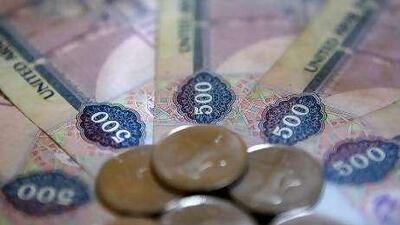What to do with our hard-earned savings is a decision none of us take lightly. After months of diligence and sacrifice, we develop a brimming pot of dirhams for the future. That's the easy part. The real challenge is how to keep it safe and, ideally, watch it grow. For those who consider the market too volatile, or don't have quite enough for a down payment on a house, a high-yield savings account may be the answer.
According to Rupert O'Connor, a senior consultant at Acuma Wealth Management, banks have never been more hungry for your cash. "If it's for a year or so and you don't need the capital, it can be a good idea," Mr O'Connor says. "Why do you think banks are giving these rates? They need your money and they have low liquidity. They want to attract investors." Indeed, as the financial crisis continues, banks are beginning to offer more saving schemes to bring customers to their coffers.
This week, HSBC Middle East announced the launch of its high- yield fixed-deposit account, aimed at customers who bring in new funds and would like to earn reasonable returns. Clients can deposit their lump sum for six, nine or 12-month terms and earn interest at 3.60 per cent, 3.70 per cent and 3.80 per cent respectively. Meanwhile, the bank is also offering free air miles based on the sum that has been invested. Deposits from Dh250,000 to Dh999,999, for example, will earn you 100,000 free air miles.
"We are keen to expand our local deposit offerings and this firmly positions HSBC as a leading savings provider," says James Pearson, HSBC's head of assets and liabilities. But HSBC isn't the only bank providing attractive savings accounts. At Rakbank, their latest F@st S@ver Account is unique because it only functions online to provide added convenience. It also includes a free debit card, no minimum balance, no maintenance charges and an interest rate of 3 per cent on dirham accounts and 1.5 per cent on US dollar accounts.
Abu Dhabi Islamic Bank and Emirates NBD have introduced their own savings accounts, but perhaps the most attractive is the programme currently on offer from Barclays. Advertising a "high security" savings and investment programme of up to 9 per cent on a fixed deposit, the scheme can be done in multiple currencies over a three-month term. The customer has the option to renew for an additional three months.
@Email:jtodd@thenational.ae

